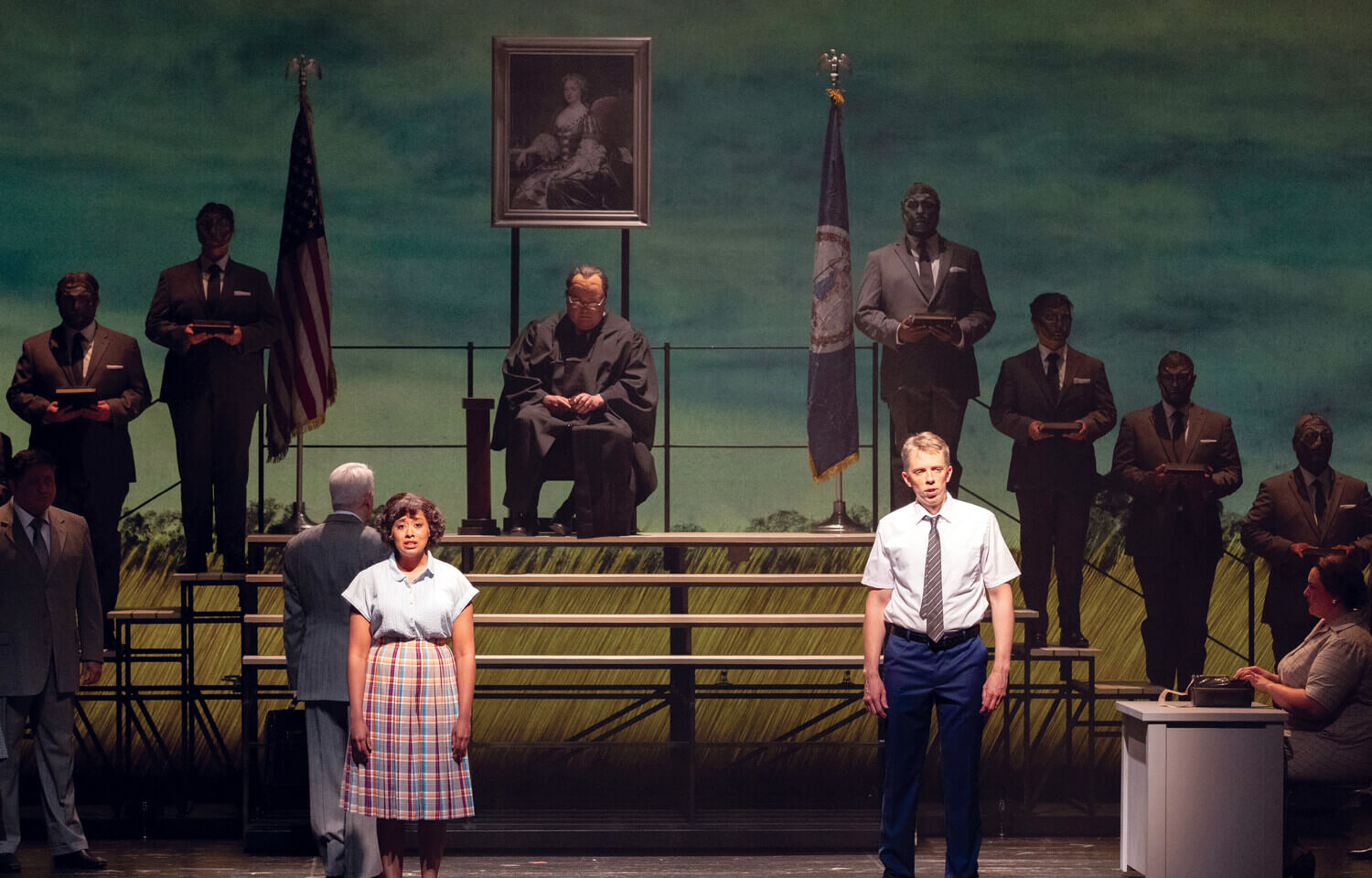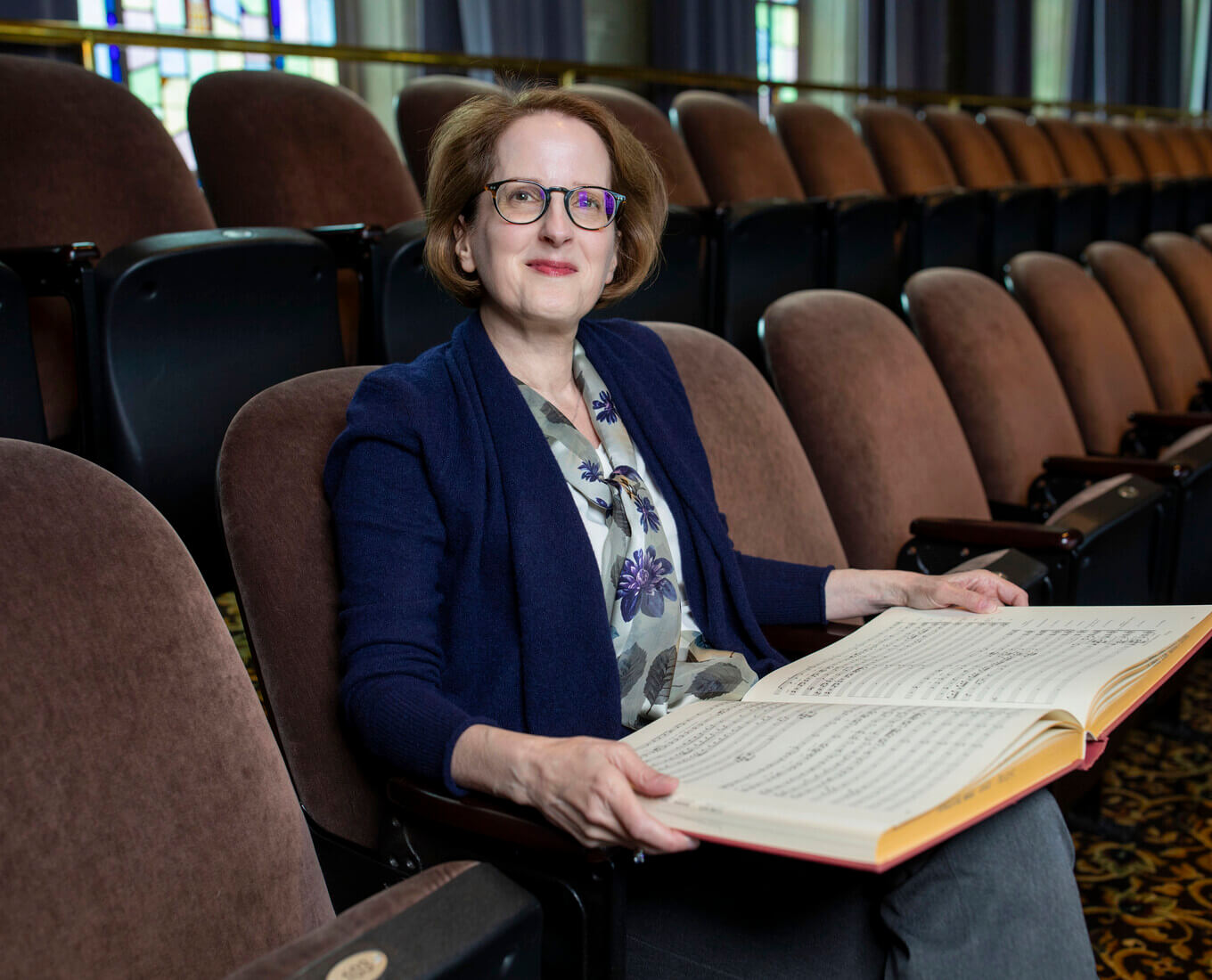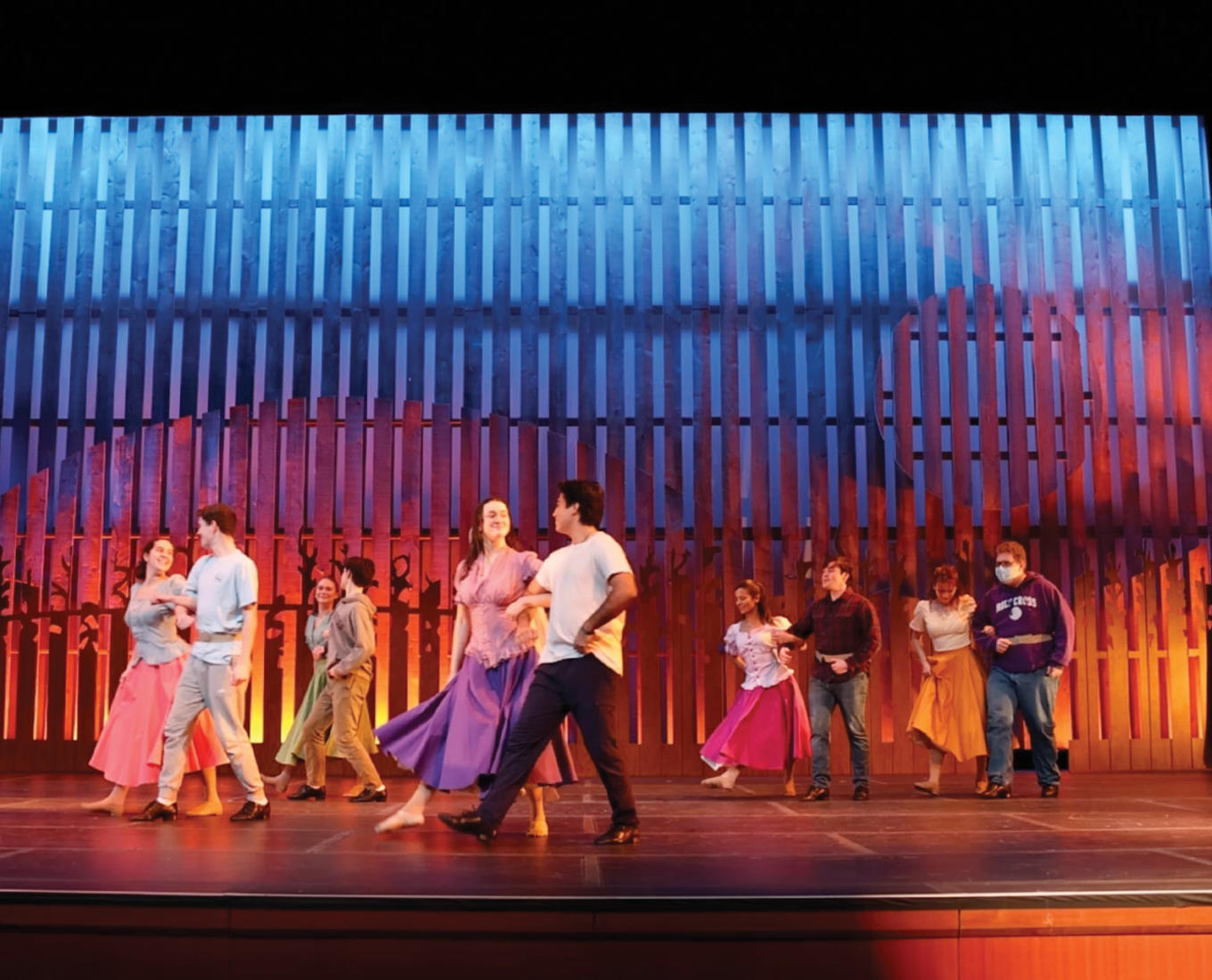A woman approached me in the lobby after the opera. She knew I was the librettist, the person who’d written the opera’s story. This particular opera, “An American Dream,” takes place during World War II and tells the story of two families affected by the Holocaust and the incarceration of Japanese Americans.
The woman wanted to tell me that she knew the history of the forced removal and incarceration of Japanese Americans; her grandparents had been sent to a detention center in California. She’d grown up hearing and knowing this history her whole life.
“But the opera made me feel it for the first time,” she said. She started to cry, and we embraced.
I won’t ever forget this moment. Music and art can connect strangers, it’s true. And I also recognized in a new way how music — in this case, opera — can help us to learn our history by getting us to slow down and feel it in our bones. It can help us to never forget.
Writing the words to operas may be a strange way to become a student of history, but for me it’s been true. I no longer view history as a list of dates I need to memorize for a test, but as a human story that has relevance in the present.
My most recent opera libretto, for “Loving v. Virginia,” tells the story of a landmark civil rights case of the same name, and it’s also a piece of American history we mustn’t forget.
This new opera’s story — commissioned by Virginia Opera and Richmond Symphony — is inspired by the lived experiences of Mildred and Richard Loving, an interracial couple from Virginia who were arrested in the privacy of their bedroom for the “crime” of getting married and cohabitating in their home state. The Caroline County judge determined that their marriage violated Virginia’s laws — specifically, the Racial Integrity Act, which forbade marriage between people of different races. In 1959, the couple was convicted and banned from the commonwealth of Virginia for 25 years.
They moved to Washington, D.C., but Richard and Mildred Loving never stopped wanting to raise their family in Virginia. The draw to the home where you know you belong can be very strong. With representation by two American Civil Liberties Union (ACLU) lawyers, their case eventually made its way to the U.S. Supreme Court. In 1967, the Supreme Court justices made a unanimous decision to strike down any bans on interracial marriage in the United States. It took a long time, but ultimately, the Lovings’ case was a triumph for equal rights and marriage equality.
I find that when I’m writing about big subjects — in this case, racism, injustice, the law — I’m constantly trying to “get small.” Where is the consequence of these big forces on the individual life? Where does the lightning strike the road? What decisions do people make during this fraught period in their lives? What are the conversations behind closed doors?
During a research trip to Virginia, I visited the Caroline County Courthouse where the Lovings were convicted, as well as the jail cell where Mildred was held in solitary confinement. I sat in these spaces with my heart and my imagination. I tried to soak in the landscape of the rural home they loved and longed for. I pored through the legal documents and court transcripts, and did a deep dive into the laws that were on the books in Virginia. And I was in constant contact with my brilliant collaborator, composer Damien Geter. I wanted to convey what I was feeling and observing and learning, because I knew it would all eventually make its way into the music.
And it did. An example: We decided to create a Law Chorus for the opera. This chorus sings language pulled directly from their arrest warrant, lines from Virginia’s race laws and their court summons. The intimidating sound and rhythm of the Law Chorus music stands in stark contrast to the music of Mildred and Richard’s dreams of home and their love for one another. You don’t have to be an opera aficionado to feel the difference. Damien’s music brings you there with fresh immediacy.
Delving deeply into fraught moments in the past inevitably gets me thinking about the fraught moments of the present. (I do not think it is a controversial statement to say that there is much in the present moment that is fraught.)
Learning the story of Mildred and Richard Loving gives me a kind of courage for the present. It’s very easy for me to feel overwhelmed by big forces of change, to think those terrible, self-defeating thoughts — that I’m only one person and what difference can one person make?
Mildred Loving has taught me that one person — one voice — can indeed make a difference, and that difference can change the course of history. Her decision to write to the ACLU did just that.
The Lovings had no money or influence or power. They had changed their plea from not guilty to guilty, presumably in order to avoid a prison sentence. They had already been convicted and banned. Years had gone by and they hadn’t appealed. There really didn’t seem to be any other options for them. But Mildred decided to put pen to paper. She wrote first to Robert Kennedy, then U.S. attorney general, and he suggested that she write to the Virginia chapter of the ACLU. And so she did that. She used her voice. It was the one bold move she had left.
And we are still feeling the power of that choice, that voice, today. It’s not lost on me that my beautiful interracial family enjoys rights today — nearly 60 years later — because she chose to use her voice.
In the opera version of the Lovings’ story, there is a scene where Mildred writes her letter to the ACLU. In a literal way, the performer manifests the power of Mildred’s voice. Through the opera performer, Mildred’s voice fills the whole room. We hear it. We feel it — there is power in the individual human voice.
I walk away feeling encouraged and inspired to use my own.
Jessica Murphy Moo ’96 is the librettist for “Earth to Kenzie,” “An American Dream” and “Loving v. Virginia,” which made its world premiere in spring 2025 at Virginia Opera. She is currently editor of Portland magazine, the award-winning publication of the University of Portland.


